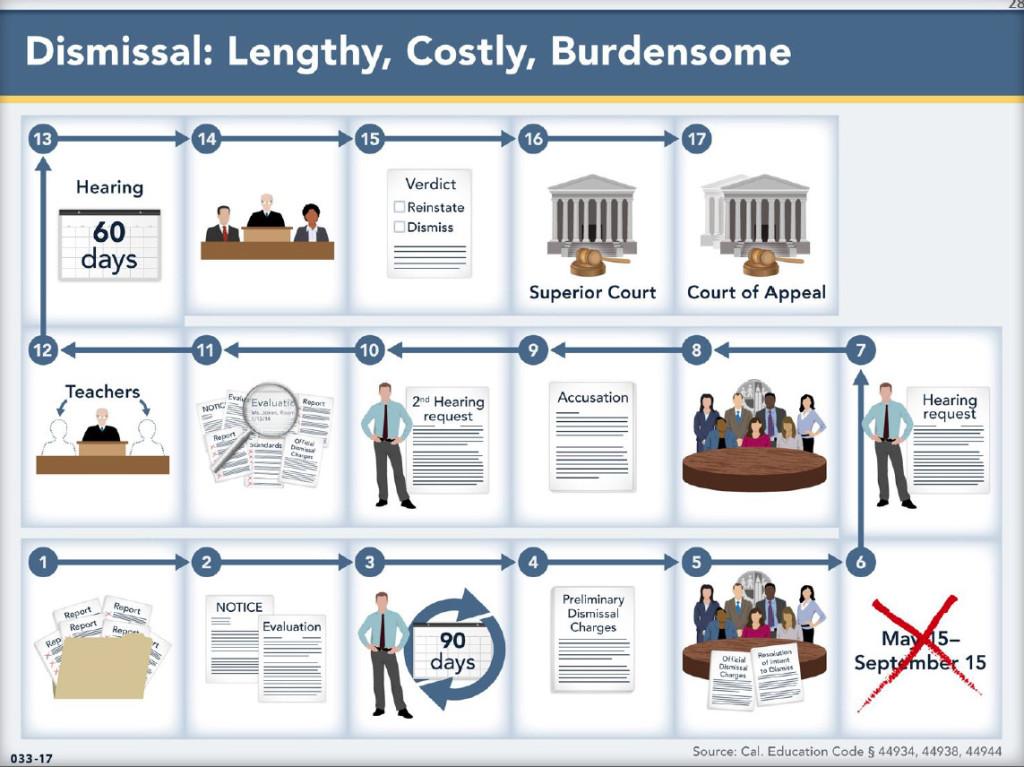Vergara vs California
Nine California public school children filed the statewide lawsuit Vergara v California against the State of California in May 2012 to strike down the laws handcuffing schools from doing what’s best for kids when it comes to teachers. These nine students are the plaintiffs. They challenged five specific statutes of the California Educational code, claiming said statutes violate the equal protection clause of the California Constitution. The offending statues are the Permanent Employment Statute, three different Dismissal Statutes, and a seniority-based layoff statute dubbed “Last In-First Out” (“LIFO”).
The permanent employment law forces administrators to either grant or deny permanent employment (aka tenure) to teachers after only 18 months or less. Only 5 states require 2 years or less to determine tenure while 32 states require 3 years. According to the National Council on Teacher Quality, administrators report needing at least three years to accurately evaluate a teacher’s effectiveness.
The seniority-based layoff or “LIFO” statute forces administrators to let go of passionate and motivating newer teachers and keep ineffective teachers instead, just because they have seniority. This statute contains no exception or waiver based on teacher effectiveness. Twenty states, including Arizona, prohibit seniority from being the primary criterion considered in layoff decisions. A review of the teacher layoff process in California by the Legislative Analyst Office concluded that seniority-based layoffs lead “to lower quality of the overall teacher workforce” and recommends that “the state explore alternatives that could provide districts with the discretion to do what is in the best interest of their students.”
All information was pulled from StudentsMatter.org who helped the plaintiffs with their case.
